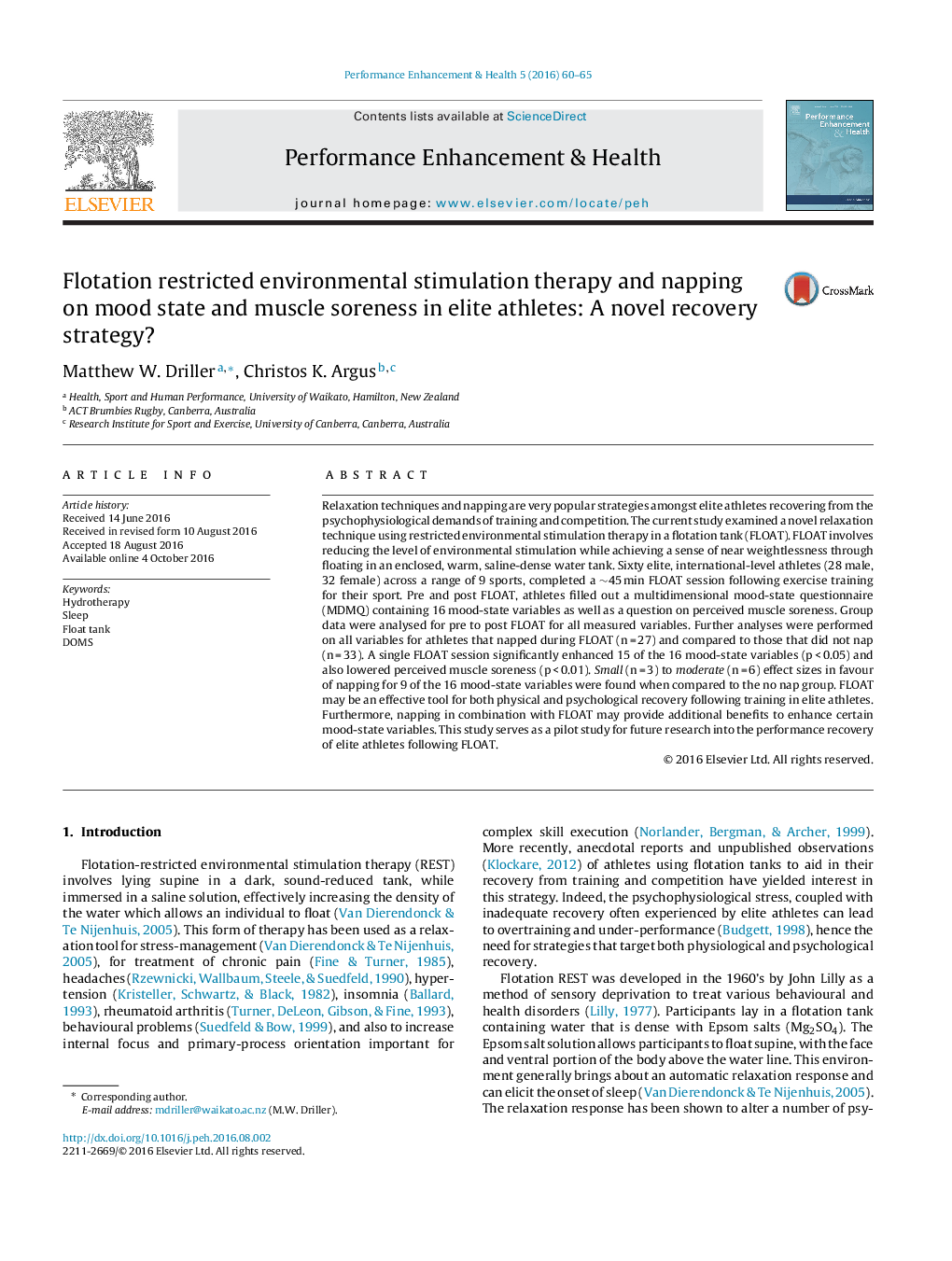| Article ID | Journal | Published Year | Pages | File Type |
|---|---|---|---|---|
| 5035447 | Performance Enhancement & Health | 2016 | 6 Pages |
Relaxation techniques and napping are very popular strategies amongst elite athletes recovering from the psychophysiological demands of training and competition. The current study examined a novel relaxation technique using restricted environmental stimulation therapy in a flotation tank (FLOAT). FLOAT involves reducing the level of environmental stimulation while achieving a sense of near weightlessness through floating in an enclosed, warm, saline-dense water tank. Sixty elite, international-level athletes (28 male, 32 female) across a range of 9 sports, completed a â¼45 min FLOAT session following exercise training for their sport. Pre and post FLOAT, athletes filled out a multidimensional mood-state questionnaire (MDMQ) containing 16 mood-state variables as well as a question on perceived muscle soreness. Group data were analysed for pre to post FLOAT for all measured variables. Further analyses were performed on all variables for athletes that napped during FLOAT (n = 27) and compared to those that did not nap (n = 33). A single FLOAT session significantly enhanced 15 of the 16 mood-state variables (p < 0.05) and also lowered perceived muscle soreness (p < 0.01). Small (n = 3) to moderate (n = 6) effect sizes in favour of napping for 9 of the 16 mood-state variables were found when compared to the no nap group. FLOAT may be an effective tool for both physical and psychological recovery following training in elite athletes. Furthermore, napping in combination with FLOAT may provide additional benefits to enhance certain mood-state variables. This study serves as a pilot study for future research into the performance recovery of elite athletes following FLOAT.
